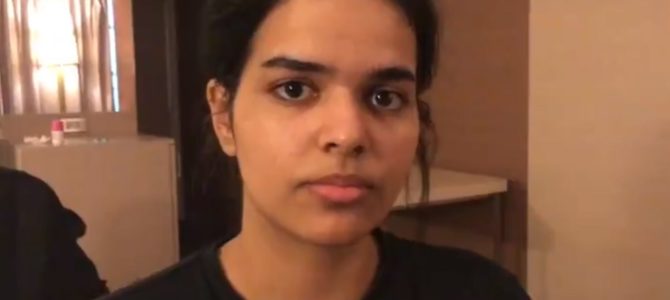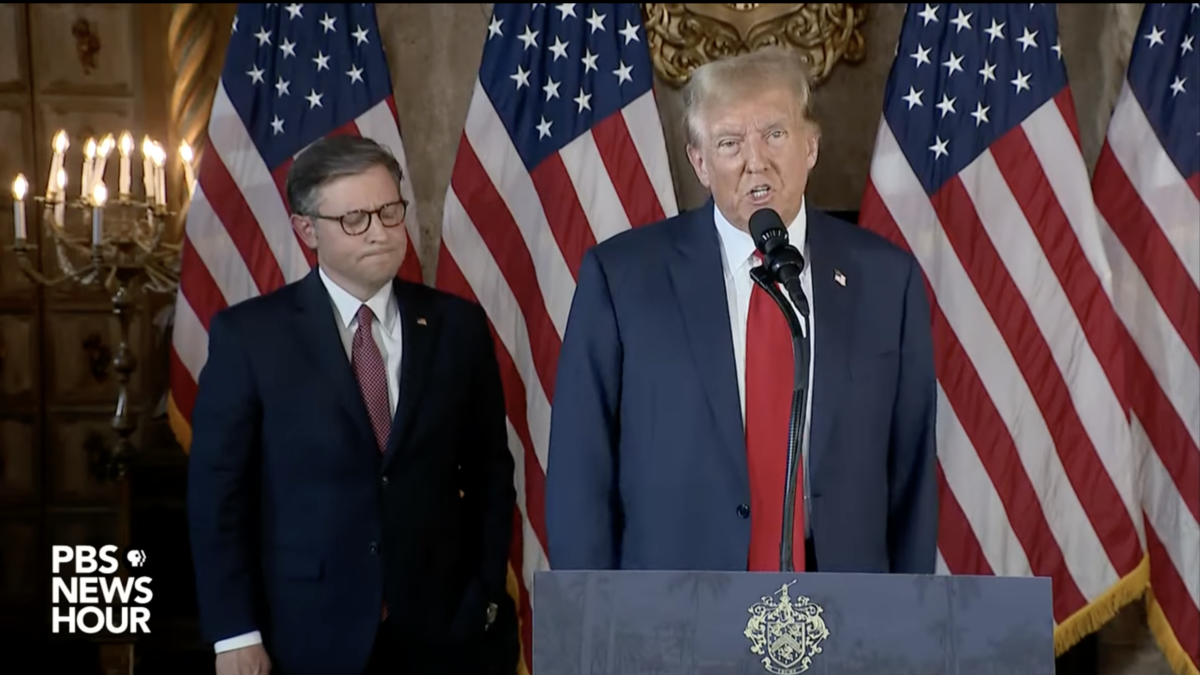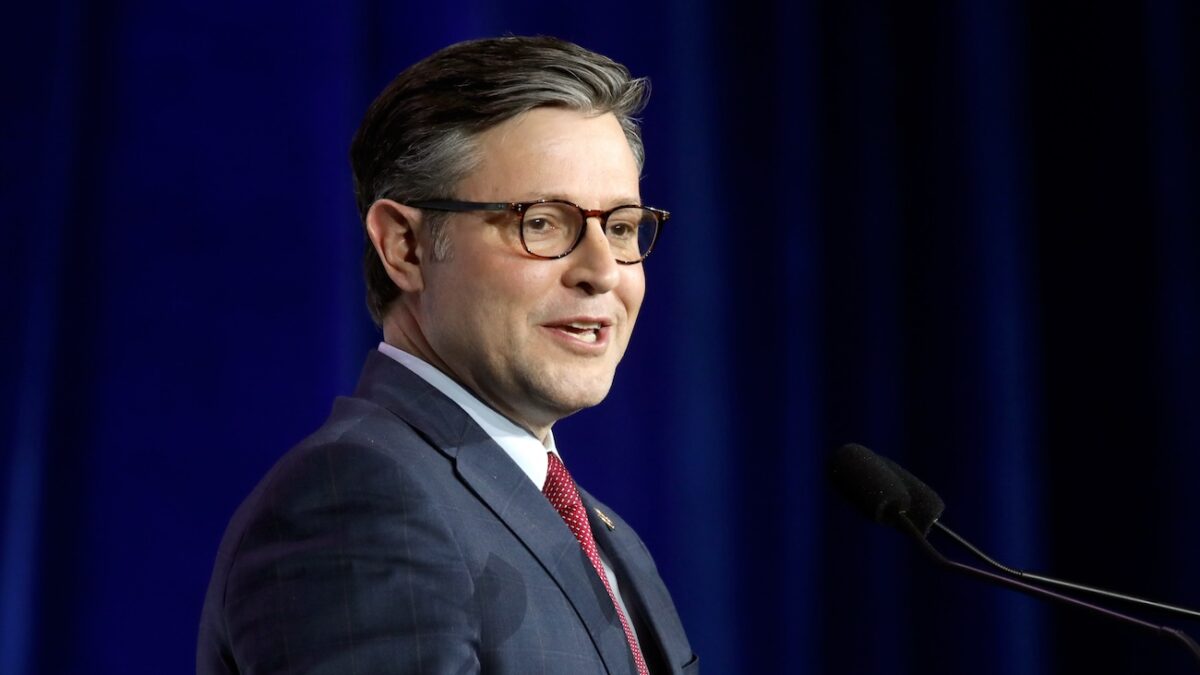
Media had a field day last week with the story of Rahaf Mohammed al-Qunun, an 18-year-old Saudi woman who fled an abusive family situation by escaping to Thailand, where she used social media to publicize her predicament and gain a hearing with the United Nations High Commissioner for Refugees (UNHCR).
Within six days of barricading herself inside a hotel room at Bangkok’s Suvarnabhumi airport, UNHCR granted al-Qunun refugee status, and Canada gave her asylum. It makes good sense for someone in fear of her life in an oppressive country to be offered asylum elsewhere. I just wish the UNHCR (and international media) would apply the same treatment to my Pakistani Christian friend Michael and his family. They’ve been waiting more than seven years, with no end in sight.
Federalist readers may remember Michael, whom I wrote about in March 2018 after Muslim extremist thugs brutally assaulted him in a suburb of Karachi, and burned his tuk tuk (also known as a motorized rickshaw), his only source of livelihood. (Thank you to the many readers who supported the GoFundMe page that raised thousands of dollars for Michael’s medical expenses).
After several weeks of recovery, Michael and his wife and three children tried to seek asylum in the European Union, but were rejected at the Polish border and forced back to Pakistan. Apparently the EU has no problem taking in more than 1 million Muslim migrants, but isn’t willing to take in a Catholic family who have been severely persecuted. Europe’s Christian ancestors, who built the greatest civilization this world has ever known — and that was a haven for those persecuted for their faith in Christ — would balk.
A Family of Color Threatened with Murder
Other Western institutions are worthy of censure for failing to help Michael’s family, who have been the targets of Islamic extremist threats, intimidation, and violence in Pakistan since 2005. After seven years of this treatment — which included attempts to forcibly convert Michael, threats against his person, threats that his wife and older daughter would be taken and married to Muslim men, kidnappings of extended family members, numerous physical assaults, and false allegations of blasphemy (an offense that often elicits mob violence) — Michael fled with his family to Bangkok.
There are thousands of Pakistani Christians living in Thailand’s capital, and elsewhere in the country, because of the suffering and persecution they have endured in their native land. This has created a humanitarian crisis that the UNHCR in Bangkok is poorly equipped to address, and thus results in tremendous backlogs for those seeking refugee status.
As someone who lived in Bangkok for three years and was heavily involved in advocating for Pakistani Catholic asylum-seekers and refugees, I have sympathy for UNHCR workers in Thailand, who are overwhelmed with the sheer number of people from Pakistan and elsewhere in need of assistance. Yet there are also significant problems that suggest UNHCR has routinely failed.
During Michael’s interview with UNHCR, he was assigned an interpreter who was blatantly working against his family’s interests. Michael, who speaks English well enough to represent himself, was forced to take an Urdu interpreter. Several times when he spoke in Urdu, the interpreter would translate it incorrectly.
The interpreter, who threatened to cancel the interview if Michael spoke in English, told the UN officer, in English, that Michael was lying about his story. At the end of the interview the interpreter told Michael in Urdu that he should return to Pakistan and convert to Islam, so that his “problems would be solved.” Michael’s family is not the only one who experienced this problem with UNHCR interpreters.
Convert or Die
Perhaps unsurprisingly given the obvious bias of the interpreter, Michael’s family’s application was rejected, as was the appeal. Unwilling to return to Pakistan for fear of their lives, they tried to stay in Thailand. Twice between 2012 and 2017 they were detained in the Bangkok International Detention Center, or IDC, a terrible place that has been documented by Western media, and which my wife and I routinely visited to provide food, clothing, and other supplies to Michael and his family.
The second time they were detained, they stayed for about eight months until their health deteriorated to such a degree that they determined to return to Pakistan. My family and a number of other family and friends helped pay the airfare to put them on a plane back to Karachi, where they returned in August 2017.
Seven months later, Michael was attacked by the same people who had threatened him years before. Now the entire family remains locked in their house, afraid to go outside for fear of further reprisals. A tutor who came to the house to teach their teenage daughter was threatened by local Muslims not to visit their home.
My wife and I, and a few other family members, send them a little money, and have been working on recording a complete testimony of their story for a U.S.-based nonprofit organization that helps persecuted religious minorities. We hope they will help resubmit Michael’s case to the UNHCR.
Asylum Is Definitely Merited Here
Reading al-Qanun’s story, I ask myself “What gives?” Six days and a little social media exposure, and she gets repatriated to Canada, probably to live a happy and fulfilling life, certainly with future media exposure that may even provide her some income, certainly notoriety.
Meanwhile, Michael and his family’s case with UNHCR isn’t even open anymore. This is especially frustrating given Michael and his family spent five years in Bangkok trying to get refugee status and were denied, while al-Qunun showed up in Bangkok and got it in six days.
Since 2015 I’ve tried my best to focus attention on the plight of Michael and other persecuted Christian minorities. I’ve gotten their stories published in The Federalist, New Oxford Review, Ethika Politika, The Catholic Thing, Crisis Magazine, and soon Touchstone Magazine, among a few others. We ran a public GoFundMe campaign that raised thousands of dollars for them. It hasn’t been enough, apparently.
There’s even a feminist angle to the story — three of the five members of Michael’s family are women, and his wife and eldest daughter have suffered threats that they would be kidnapped and forcibly married to Muslim men. Moreover, while they were detained in Bangkok, a Thai prison guard began escorting their older daughter on walks throughout the building, including alone up onto the roof. Sounds like a Me Too story in the making.
Talk about Discrimination Against Minorities
The more cynical side of me perceives that the international community, and especially the West, is far more motivated to support causes that correlate with progressivist, globalist ideology. In al-Qunun’s case, her story inspires all those who prioritize feminist dogma — indeed she is the new cause celebre of the Saudi-Arab feminist movement. Egyptian-American feminist journalist Mona Eltahawy has declared, “Rahaf Mohammed al-Qanun – mark my words – is going to start a revolution in Saudi Arabia.”
Al-Qunun is a young, inspiring, attractive woman who pushed back against oppressive male patriarchy and screamed her plight from the rooftops until she was heard. My friend Michael and his family are quiet, humble, devout Catholics whose piety would make many Westerners uncomfortable.
I know there’s likely never to be parity between the attention given to people like al-Qunun and people like Michael, even if the latter’s case is far more severe, given he is responsible for a family whose lives and futures are in danger. Indeed, he has the scars of numerous physical attacks all over his body.
Yet what I’d like from the media and the international community is a bit less self-congratulatory self-righteousness that creates a facade of a fair process for people seeking asylum. Australian Minister of Foreign Affairs Marise Payne, for example, declared, “the most important thing is that a young woman in very, very difficult circumstances is supported appropriately through the UN processes.” As someone who has witnessed “appropriate” UN processes screw over numerous Pakistani Catholic families in far more “difficult circumstances” than al-Qunun’s, I have to call bullsh-t.
Of course, the best thing for Payne’s government (or Canadian Prime Minister Justin Trudeau’s government, or any other Western government, for that matter), would be to help Michael and his family get out of the hell that much of Pakistan has become for Christian minorities. Now that would be some public political virtue-signaling I wouldn’t mind seeing and supporting.
To that end, please feel free to repost this article on social media, as well as this short video of Michael and his family sharing their story and current plight.









